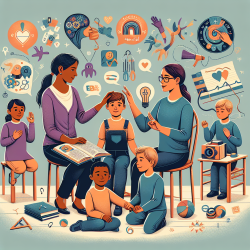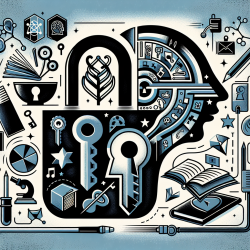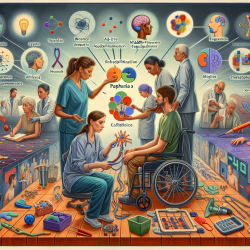As practitioners in an educational setting, it's crucial to stay updated with the latest research to provide the best support for our students. A recent study titled In their own words: The impact of subtle language and communication difficulties as described by autistic girls and boys without intellectual disability offers valuable insights that can significantly enhance our approach to therapy.
This study interviewed 12 autistic children, aged 9-14, without intellectual disability, to explore their experiences with subtle language and communication difficulties. The children provided detailed accounts of how these difficulties impact their daily lives, particularly in areas such as education, social interactions, and emotional well-being. The findings are both enlightening and actionable, providing us with several strategies to improve our practice.
Key Findings and Practical Applications
Understanding Subtle Language and Communication Difficulties
The study revealed that even subtle language and communication difficulties could have a profound impact on autistic children. These difficulties often go unnoticed but can significantly affect the child's functionality, social relationships, and emotional well-being. As practitioners, it's essential to identify these subtle difficulties through thorough assessments and observations.
Strategies for Improving Communication
The children in the study identified several strategies that helped them manage their communication difficulties. These strategies can be incorporated into our therapeutic practices:
- Word-Finding Difficulties: Encourage the use of filler words or phrases and provide support in building a robust vocabulary.
- Listening and Comprehension: Use visual aids, written instructions, and memory aids like diaries and apps to support listening and comprehension.
- Explaining Thoughts and Ideas: Facilitate written communication and use intermediaries like peers or family members to help explain thoughts and ideas.
- Managing Emotions: Encourage the use of calming strategies, safe spaces, and written communication to help children express their emotions.
Fostering Social Interactions
Social interactions can be particularly challenging for autistic children with subtle language and communication difficulties. The study suggests creating opportunities for these children to engage in one-on-one or small group settings, focusing on shared interests to build connections. Additionally, understanding and respecting the child's comfort level in social situations can help reduce anxiety and foster better social interactions.
Supporting Emotional Well-Being
The bi-directional relationship between language difficulties and emotional responses was a significant finding of the study. Children often experienced negative emotions due to communication breakdowns, which in turn affected their ability to communicate effectively. As practitioners, we can support emotional well-being by creating a safe and supportive environment where children feel comfortable expressing their emotions. Incorporating strategies like writing or using creative outlets can also help children process and communicate their feelings.
Encouraging Further Research
While this study provides valuable insights, it also highlights the need for further research into the subtle language and communication difficulties experienced by autistic children. Encouraging ongoing research and staying informed about new findings can help us continually improve our therapeutic practices and better support our students.
By implementing these research-based strategies, we can make a significant difference in the lives of our autistic students, helping them navigate their educational journey with greater confidence and success.
To read the original research paper, please follow this link: In their own words: The impact of subtle language and communication difficulties as described by autistic girls and boys without intellectual disability.










